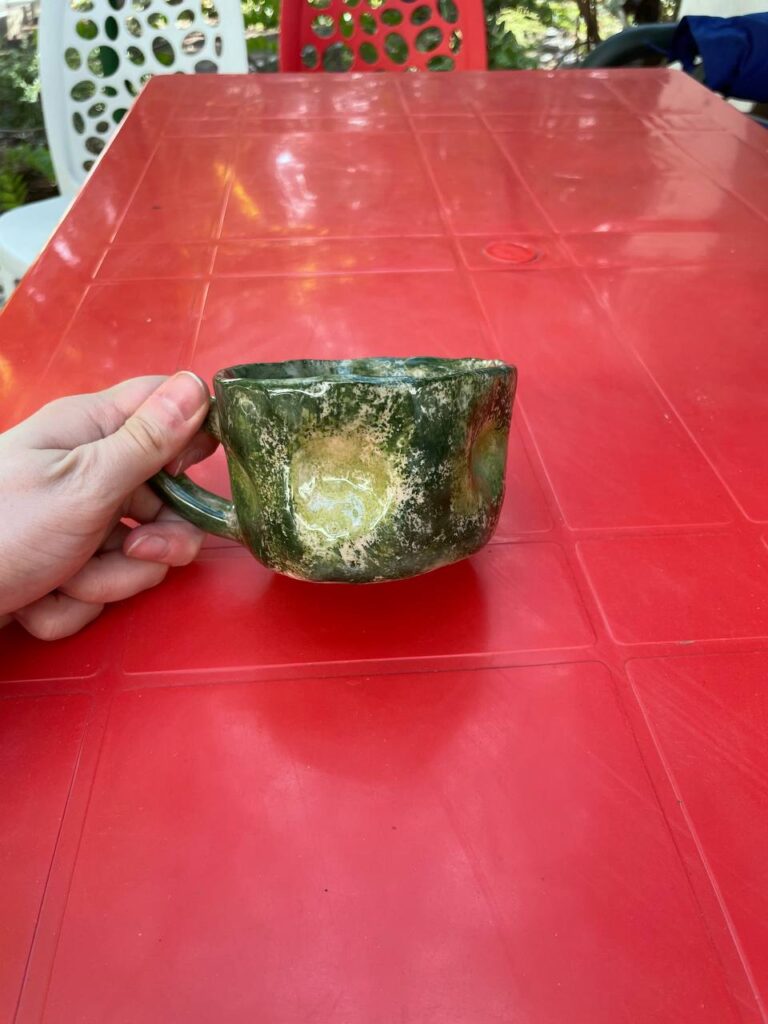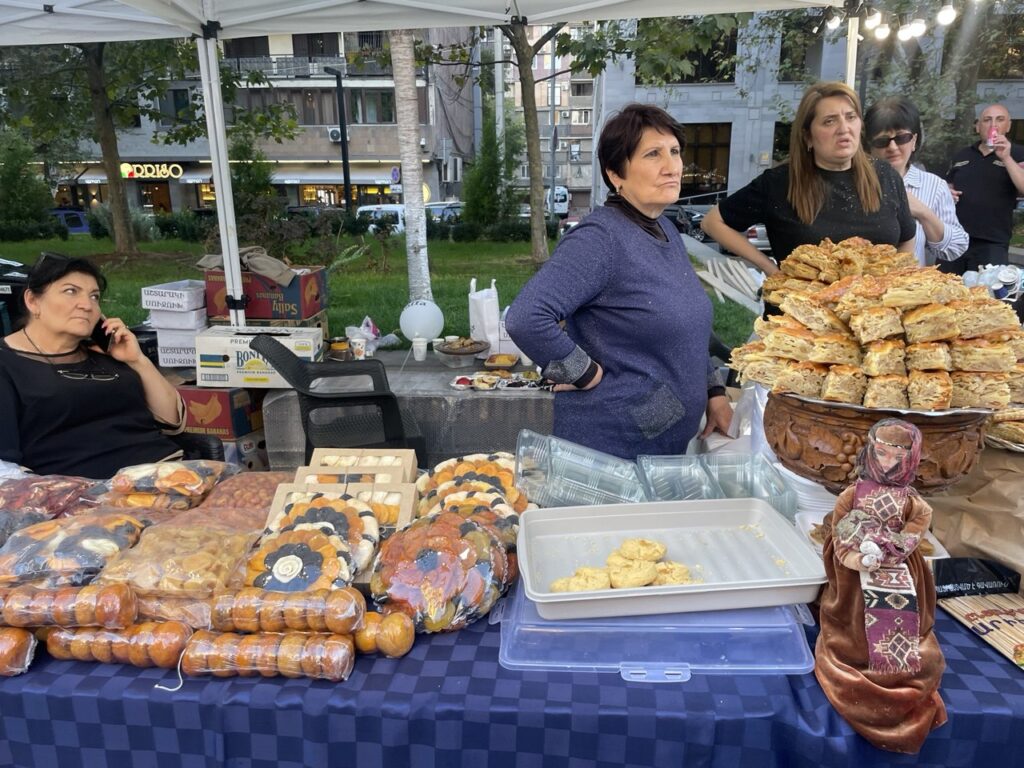Project report: Integration of displaced women in Armenia through economic empowerment
SGS 2024 Grantee: Mutabor Platform, Armenia
Project: Economic stabilisation and integration of displaced young people and women through arts and crafts
Gohar (name changed) lives on the border of Armenia, in the Syunik region. She was first displaced from Artsakh (Nagorno-Karabakh) during the 2020 war but later returned, only to be forcibly displaced again during the ethnic cleansing of Artsakh Armenians in 2023.
Now, she lives in a two-room apartment with her five children. Her husband and father both died in the war. Her only wish is to find work, to earn her own income and sustain her family.
In her interview with Mutabor, Gohar mentioned that she chose to move to Syunik because its nature reminds her of her hometown. Moving from one border region to another does not frighten her; instead she feels mentally at peace in Syunik, close to her homeland.
During the project, Gohar received support to launch her pottery business. She even managed to teach another displaced relative, who also took part in the project.

Another participant, Aruna, had already established a small business producing eco-bags embroidered with Armenian patterns. Since her business is still small and based in Hrazdan, she needed support with materials and in reaching her target audience and potential buyers.
The project focused on helping women acquire and develop skills in their chosen crafts, providing them with materials, studio access, and knowledge in areas such as branding and storytelling through online and offline coaching sessions. Our goal was to engage women of all ages who wanted to start small businesses and achieve financial independence.
Eight women received financial support to promote their products. Participants took part in ongoing expos to showcase their work to diverse audiences and build networks with potential customers. One participant was supported to open a stand selling jengyalov hats (Artsakh bread with assorted greens) in Yerevan, located near a busy business centre.

Overall, 70 women participated in the seminars, lectures, and workshops on social entrepreneurship, small business management, business mindset, storytelling, and community impact.
We faced challenges in engaging the most vulnerable women, those who had little or no prior exposure to similar initiatives. However, with the support of local and regional partners, we were able to engage more women throughout the process.
Unfortunately, support for refugees from Artsakh has significantly decreased over the past year. Many women still struggle to sustain their families as the sole breadwinners.
Lessons Learned
- Always involve experts who speak the local dialect when working with vulnerable groups to build trust and connection.
- Engage participants in the organisational process, especially in areas where they can share their own skills and support one another. A peer-to-peer approach is crucial for building a sustainable community.
- Collaborating with regional organisations builds trust and provides opportunities to reach the most vulnerable women, those who are otherwise the hardest to engage.
- Ensure anonymity for participants to make them feel more comfortable and secure.
Contact:
Diana Yezekyan
Founder, Mutabor Platform